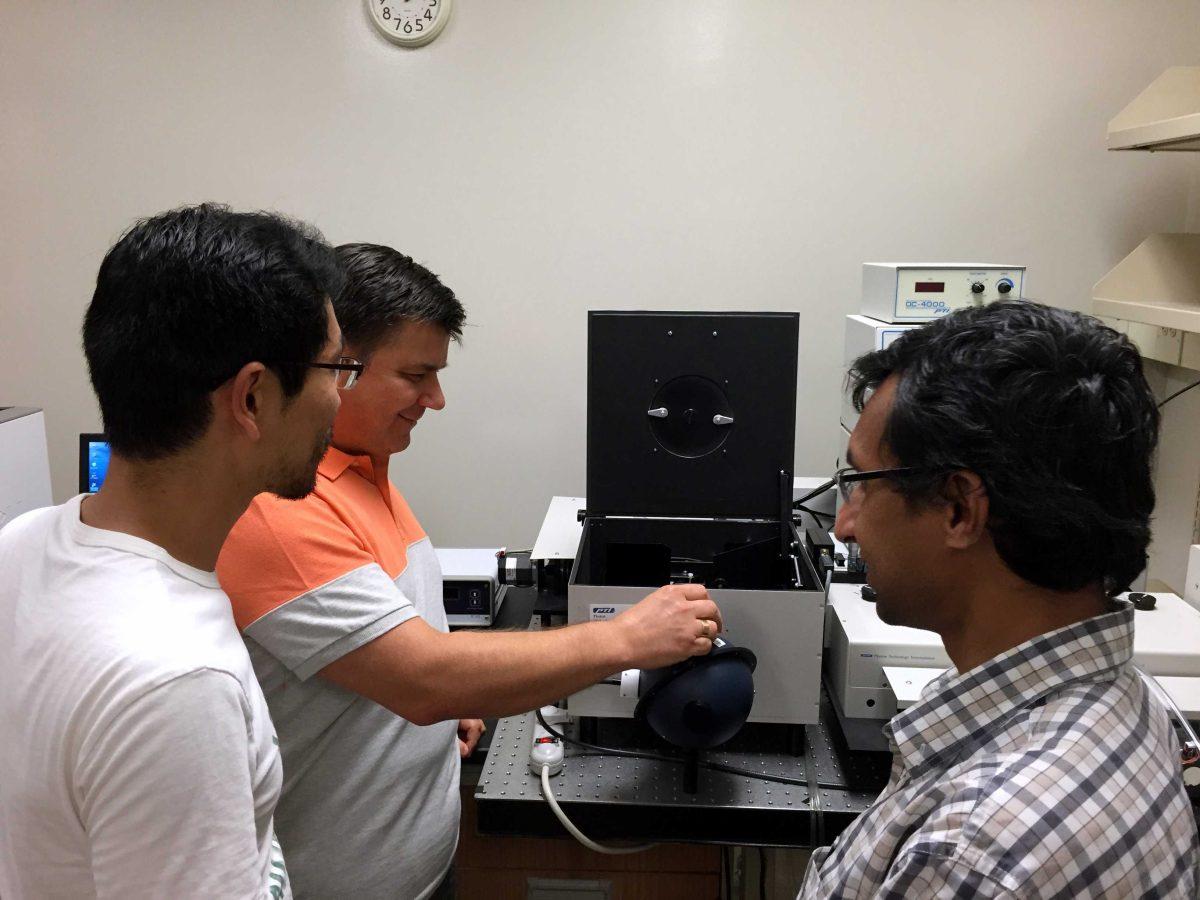A University professor and his students are in the beginning stages of a research project that could potentially revolutionize the electronics industry.
Organic and Materials Chemistry professor Evgueni E. Nesterov has been developing films made of organic polymers that could increase the quality of light-emitting devices and solar cells.
Though he and his team of student underlings are in the early stages of research, their work was highlighted by the U.S. Department of Energy in October of 2017. A press release on the department’s website illustrated how Nesterov’s method of synthesizing solar cells could create more dense, secure organic light-emitting devices.
“This unique morphology would be particularly suited for applications requiring efficient charge transport across the films, such as in photovoltaic and light-emitting devices. In general, surface-initiated polymerization is not limited to polythiophene but can also be expanded for other classes of semiconducting polymers and copolymers,” The U.S. Department of Energy said in a press release.
“It’s cheaper to make devices from organic materials,” Nesterov said. “That’s why there is a lot of interest in developing organic materials, which can replace those functions and materials which are traditionally [inorganic].”
Because organic materials are cheaper and of a higher quality than inorganic materials, such as silicon, Nesterov said he and his team want to know how to control the growth of polymer chains. While the organic materials are flexible, he said, the problem is controlling the orientation.
Nesterov explained the focus of his research in terms of a car driving along a straight road compared to a car driving along a winding road. Driving a car on a winding road is more laborious than driving a car on a straight road, he said.
“Imagine the same for an electron,” said Nesterov, who hopes that this idea reciprocates in his research.“If they have to move through curved passageways, they move slowly.”
Though the idea is clear, Nesterov explained that it is important that he and his team have a sufficient understanding of their research before they could make any application.
“The research creates the foundation on which the commercial application can be built upon,” Nesterov said. “In order to do something that is ommercializable, you have to have a very good fundamental understanding and method of how to do things.”
Professor’s research highlighted by the Department of Energy
November 8, 2017
LSU professor Evgueni E. Nesterov and two graduate students, Sang Gil Youm and Sourav Chatterjee, conduct research highlighted by the U.S. Department of Energy.
More to Discover











